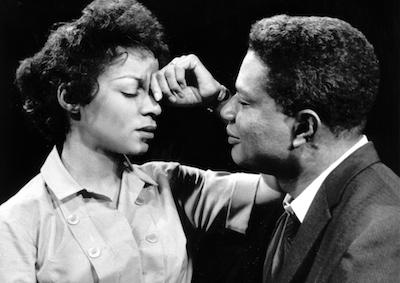Acclaimed stage and screen couple Ossie Davis and Ruby Dee star in this videotaped telecast that explores a hardworking young man's struggle to provide for his family and elevate his self-worth amid the drudgery of his seemingly dead-end factory job. Determined to improve his station and pursue his life-long ambition of becoming a police officer, Willie Harris (Davis) must ultimately face the potentially crushing reality that childhood dreams may fade with the responsibilities of marriage and age.
The sensitive drama, originally conceived and first staged by playwright Ernest Pendrell as concerning a Jewish family, is heightened by the casting of Davis, Dee and other Black actors, which brings a meaningful subtext of the then-burgeoning civil rights movement to the play's surface conflict regarding labor and management. A few days after the program's initial broadcast, Variety reported that Peabody Award-winning Play of the Week creator Ely Landau purposely cast the television play with African American actors “without changing a line in the script” and without notifying the press, out of worry that his “experiment would be ruined if the public would be appraised.” While Variety further noted that Landau “wanted the play to highlight people's lives, irrespective of their color,” the progressive underpinnings of the casting experiment brings unexpected, and likely intentional, intensity to scenes that include Willie Harris confidently supervising white factory workers, speaking forcefully to the white factory owner and accepting an innocent kiss on the cheek from a young, pretty white woman co-worker—all without any racial conflict or white reprisal. These “color blind” scenes, combined with a complete absence of any direct mention of the actual struggles of African American life in the early '60s, set the program in an unusual alternate reality for the time, one that, as a Variety review of the program noted, broke with the “virtual ‘lily white' drama tradition on the TV medium.” —Mark Quigley
DigiBeta, b/w, 110 min. An NTA production. Executive producer: Worthington Miner. Producers: Lewis Freedman, Ira Cirker. Director: H. Wesley Kenney. Writer: Ernest Pendrell. Cast: Ossie Davis, Ruby Dee, Judson Laire, Milt Kamen, Warren Berlinger.
Preserved from the original 2” master tape. Video transfer at DC Video. Engineering services by David Crosthwait.






 Mobile Navigation
Mobile Navigation

